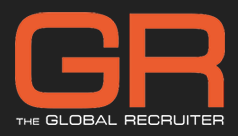Ireland’s recruitment industry generated €3.96bn in 2024, with employers leaning more on temporary and contracting solutions as skills shortages persist across key sectors, according to the Employment & Recruitment Federation’s Irish Labour Market Monitor.
Employment stood at 2,776,400 in Q4 2024, up 2.6% year on year. The job vacancy rate at end-Q4 was 1.1%, equivalent to 25,400 open roles. Agencies report the sharpest shortages in engineering and healthcare, alongside patchier demand in selected IT roles. Business sentiment has firmed, with nearly half of firms expecting better trading conditions over the next 12 months.
Permanent recruitment accounted for roughly one quarter of industry turnover in 2024. Temporary and contracting together represented more than two thirds, reflecting employers’ focus on delivery while managing fixed headcount. The most active hiring categories were accountancy and finance, healthcare and engineering, followed by business support, construction and IT.
Commenting, Geraldine King, Chief Executive of the Employment & Recruitment Federation, said: “Employers are leaning on temporary and contracting to keep delivery on track while permanent headcount stays tight. Agencies are filling the gaps that matter most to the economy, particularly in healthcare and engineering. Two practical fixes would move the dial quickly: faster, predictable visa processing for priority roles and targeted upskilling that aligns training places with real vacancies.”
Siobhán Kinsella, President of the Employment & Recruitment Federation, added: “The pattern is clear. Acute shortages persist in mechanical and electrical engineering and across nursing and social care, while demand in some IT areas has normalised. At the same time, data and AI-adjacent skills are showing up in more briefs, from compliance to workflow design. Sharper workforce planning, coupled with visa and training supports, will help businesses maintain momentum as hiring needs evolve.”
Ireland’s labour market continued to expand into 2025. Total employment reached about 2.81 million in Q2 2025, up approximately 2.3 percent year on year. Average weekly earnings passed €1,000 for the first time in Q1 2025, rising 5.6 percent year on year, underscoring ongoing wage pressure in a tight market.
Candidate supply is uneven. Agencies report the sharpest shortages in engineering and construction, with significant gaps in healthcare and social care. By contrast, there is oversupply in childcare and some IT roles, underscoring the need for targeted training, faster visa processing for priority disciplines, and tighter workforce planning.

